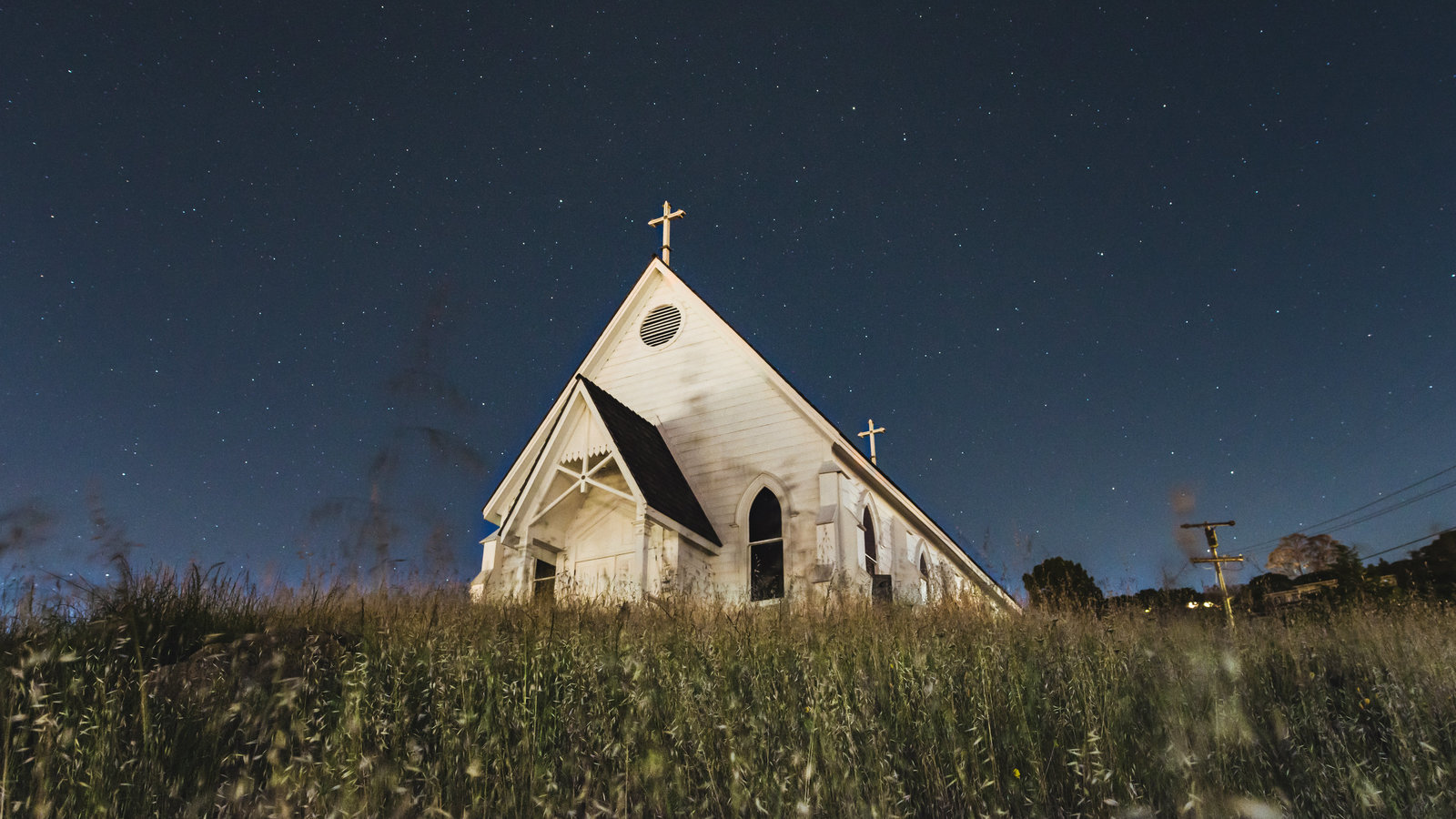 After a lifetime of pastoral ministry in a small town church, I'm called on to teach a class on theEcclesiology: after four decades + of preaching, counseling, marrying, burying, weeping, rejoicing, seeing people leave for wonderful reasons--as in Great Commission--and dealing with others who left for all sorts of bad reasons, working through Mondays when I wanted to leave, and enjoying other times when I couldn't imagine ever doing anything else (obviously, the latter pretty much won), I need to figure how to incorporate that experience into a few class sessions, without allowing who I am to hijack what I'm tasked to do--actually teach ecclesiology, not talk about the old days. As I look back on my real-life experience, work through what I'm doing now--getting ready to teach a class at Pacific Islands University--and look forward to what is next--the second half of the class is eschatology (last things)--I find myself again thinking, "The church is this world's last best hope."
After a lifetime of pastoral ministry in a small town church, I'm called on to teach a class on theEcclesiology: after four decades + of preaching, counseling, marrying, burying, weeping, rejoicing, seeing people leave for wonderful reasons--as in Great Commission--and dealing with others who left for all sorts of bad reasons, working through Mondays when I wanted to leave, and enjoying other times when I couldn't imagine ever doing anything else (obviously, the latter pretty much won), I need to figure how to incorporate that experience into a few class sessions, without allowing who I am to hijack what I'm tasked to do--actually teach ecclesiology, not talk about the old days. As I look back on my real-life experience, work through what I'm doing now--getting ready to teach a class at Pacific Islands University--and look forward to what is next--the second half of the class is eschatology (last things)--I find myself again thinking, "The church is this world's last best hope."church and last things, some 8,000 miles from home.
As I was working on the syllabus for the class, my daughter-in-law, a pastor's wife, sent me this article. Especially, if you are part of the leadership of a church, I encourage you to read it.
http://www.desiringgod.org/articles/love-the-one-you-re-with (If you're old enough to remember the song, don't let the title discourage you.)
Ephesians 5 tells us that God's plan for the Bride of Christ, the church, is to make her a "church in all her glory, having no spot or wrinkle or any such thing; but that she would be holy and blameless" (Eph 5:27). I can assure you, whether you look at the church as a worldwide entity, or you evaluate any local assembly of Christ-followers, she ain't there yet. Don't be discouraged, though. The Church is still the tool God is using to accomplish His purpose. She is an essential part of guiding this world, and each of us, to the destiny God has planned.
The Church: it's what God is doing in the here and now, leading to making all of creation what it ought to be. That's worth thinking about. If you can, I invite you to enroll as a student or auditor in THEO 302, June 26-August 11, Write me at the address below and I can get in touch with people who can help you do that. I know that for most of you, showing up in Mangilao Guam three times a week is going to be kind of hard. If you would like, though, I'll give you some reading you can do so you can study on your own. (Some of it will involve buying some books. Some will be handouts that I'll send you for free. Begin with the article linked below. It's part of my introduction.) If you are interested, send me a note at hmerrell@piu.edu.
Pray for your church, your pastor(s), the church; and I'd appreciate you praying for Pacific Islands University, and for me and my students as we work through THEO 302.
Love the One You’re With
In spite of a couple of horribly run-on sentences, no English teachers were actually harmed in the production of this blog post.


